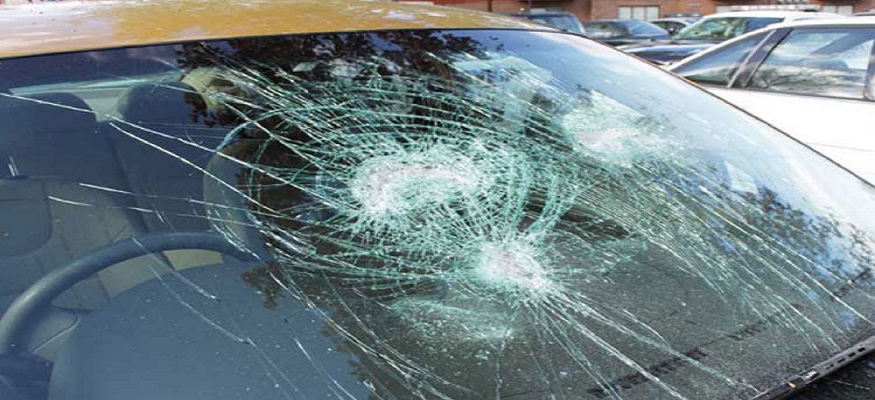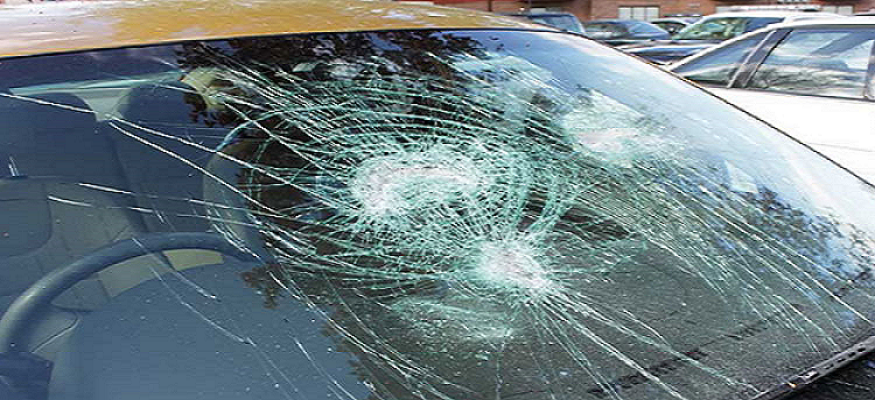Comprehensive Coverage
Comprehensive insurance coverage covers damage to your that wasn't caused by a collision. (That's why it's sometimes called "other than collision" coverage). That includes:
Theft
Vandalism
Fire
Glass damage
Animal damage
Weather damage
Falling-object damage
For your windshield damage to be covered by comprehensive, you'd need to have added comprehensive coverage to your policy before the incident occurred—you can't add it after the fact.
Find out if you have comprehensive coverage on your vehicle by checking your declaration page, calling your agent, or filing the claim and speaking with an adjuster.
Full Glass Coverage
There is also an optional insurance add-on called full glass coverage, which may be offered through your insurance company. This coverage saves you from paying a deductible for a glass claim. It's not available in all states, and as it's an optional coverage, you may not have it. It also may have a slightly different name, such as Zero Dollar Glass Deductible.
But if you did decide to purchase full glass coverage, you won’t have to even pay the deductible for repairing or replacing your windshield: your glass claim is covered in full.
Repair or Replace?
Generally, there are two solutions to damaged glass: repairing the chip or crack, or replacing the entire windshield.
Repair
Leaves factory-installed windshield seal in place
Takes only 30 minutes or so
Best for small breaks that aren't directly in front of the driver
Replacement
Costs more than a repair
May be required due to extended damage or location of damage
Comprehensive Deductibles
Comprehensive insurance typically requires a deductible, although you often have some choice in how much it is when you sign up. Generally, the lower the deductible, the higher the cost of insurance. Some insurance companies even offer no-deductible insurance. Check your policy to see what your deductible is for comprehensive claims.
Deductibles on Glass Claims
Your insurance company typically will only pay repairs beyond the cost of your deductible. Sometimes, an insurance carrier will require a deductible on comprehensive coverage but will waive that deductible specifically for glass damage. Other companies waive the deductible for glass repairs, but not replacements.4 You should find out whether your carrier waives deductibles for glass claims before deciding whether to file.
Some states even require that a deductible not be applied in case of glass claims. In those states, you may be able to get your glass repaired or replaced without having to pay your deductible.
Should You File a Claim?
If the cost of repairs is greater than your deductible, you should consider filing a claim.
If you're hesitant because you don't want your insurance rates to go up, know that filing a claim won't necessarily affect your premium.9 Insurance carriers typically add a surcharge to policies that make claims due to something within your control, such as moving violations, not things out of your control. Usually, repairing a windshield doesn’t signal risky driving behavior in the way that, say, an at-fault accident would.
If You Can't Afford the Deductible
If you're simply too short on cash to pay your deductible, you may try putting off your repair until you can save up the money. However, repairing your glass in a timely fashion is important, not to mention you could receive a ticket if a police officer catches you with a cracked windshield.
File a Glass Claim Right Away
The sooner you file your claim and arrange for the work to be completed, the sooner your damaged windshield can be repaired or replaced.
A small chip can spread, turning into a large crack over time and requiring a full windshield replacement. If you have a small chip in your windshield, you may be able to get it repaired quickly, at your home or office, at no out-of-pocket cost, provided you have comprehensive coverage. That beats waiting until a little problem becomes a big problem, possibly requiring a full replacement and paying a deductible.
If you have a bare-bones policy with personal liability and property damage (PLPD) coverage only, you will have to pay to repair or replace your glass on your own. Make sure you learn about your car insurance coverage before the time comes to file a claim.




